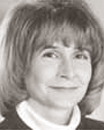 |
Authors of Financial Books
for Women
Patricia Smith
Author of Each
of Us

visit Patricia's website at www.eachofus.com
- What led you to write this book?
I have been in the workforce over 30 years, working in both
traditionally
female, and traditionally male positions. I have also followed the
women's
movement closely during that time and have read what many authors have
to
say. For the past 22 years, I have been in business-to-business sales,
so I
have had exposure to many more companies than those for which I worked.
The
women's movement is only impacting part of the female work force. In all
organizations, the same patterns exist. Most women are clustered into
predominately female, staff positions. They are promoted, but remain in
"female job tracks." Men and women who follow "male" career paths earn
significantly more. Women are separated into two classifications, by
themselves and others. What I call "career women" follow male career
paths,
other women (the majority of us) follow female career paths. The reasons
for
this are varied and complex, but fairly simple to rectify with a little
awareness. I wrote this book simply because I was so frustrated.
Individual
women believe they don't "qualify" for high-paying positions, or they
don't
want them. Authors who see things clearly have clarified things for me.
I
hope to clarify the reasons we hold ourselves back, and what we can do
about
it. Small adjustments can make enormous changes.
- What do you feel to be the biggest challenge facing women today when
handling their finances?
- Women's tendency to mistrust their own judgement
- Women's tendency to do what we are told.
Investment "advisors" are
coming out of the woodwork. Money can be lost very, very easily. While
women
are generally conservative investors, they need to be very careful who
they
listen to.
- How has the atmosphere changed for women investors in the last 10
years?
The atmosphere has changed for women just as it has for men. Individual
investors have tremendous amounts of information at their fingertips.
They
can execute trades themselves, without a broker or advisor. This is a
phenomenal amount of power and responsibility.
- How will the atmosphere change for women investors in the next 10
years?
I don't see the investment community remaining as it is. I can pay $10
to
sell 1,000 shares, or I can pay $250 to sell the same shares. Many
people
will have to find a new way to make a living. The heaviest investors
have
traditionally been senior citizens. As baby boomers enter this stage,
they
won't invest the same way. More people will make their own decisions
than
now.
- Where did you start your career and how did it lead you to where you
are today?
I started my career as a Home Economics teacher, which is a fairly
female
profession. After 5 years of that, I moved into the business world, in
corporate sales. For the past 9 years, I have owned an advertising
agency,
specializing in business-to-business sales. Like most people, I have
changed
jobs a few times and followed different paths. Not everything led to
where I
am. I urge women to take control of their own careers, rather than let
someone else decide what they should do. On the other hand, women tend
to
plot, plan, and hesitate, rather than charge into a job. We need to be
better at moving forward, even when the outcome is unknown. If we make a
mistake, so what?
- How much money do you need to start investing?
Because commission (for both the buy and the sell) eats up part of the
investment, it must be considered. Since commission rates are so low for
do-it-yourself investing, you could start with as little as $100. Peter
Lynch recommends that you use money you can live without for about 5
years.
(I think that's accurate.) Too many women wait until they have money
they
don't mind losing. None of us has any money we don't mind losing.
- How should a woman get started investing with no investment
experience?
I recommend Peter Lynch's first book One Up on Wall Street. I do not
recommend listening to the cold calls from brokers.
- If a woman has debt, at what point should she become an investor?
Debt is a very serious problem in this country, I believe. Debt for real
estate is different than credit card debt. If a women can't get through
the
month without increasing her debt, she should concentrate on solving
that
problem first.
- Have you published any other books before this one? If so, what are
they?
This is the only book I have written. I'm a businesswomen who has a
message,
not an author looking for a topic. I had an excellent editor, which made
a
big difference.
- What are your future book writing plans?
none
visit Patricia's website at www.eachofus.com
|
|
